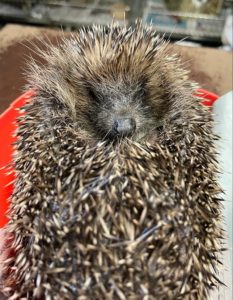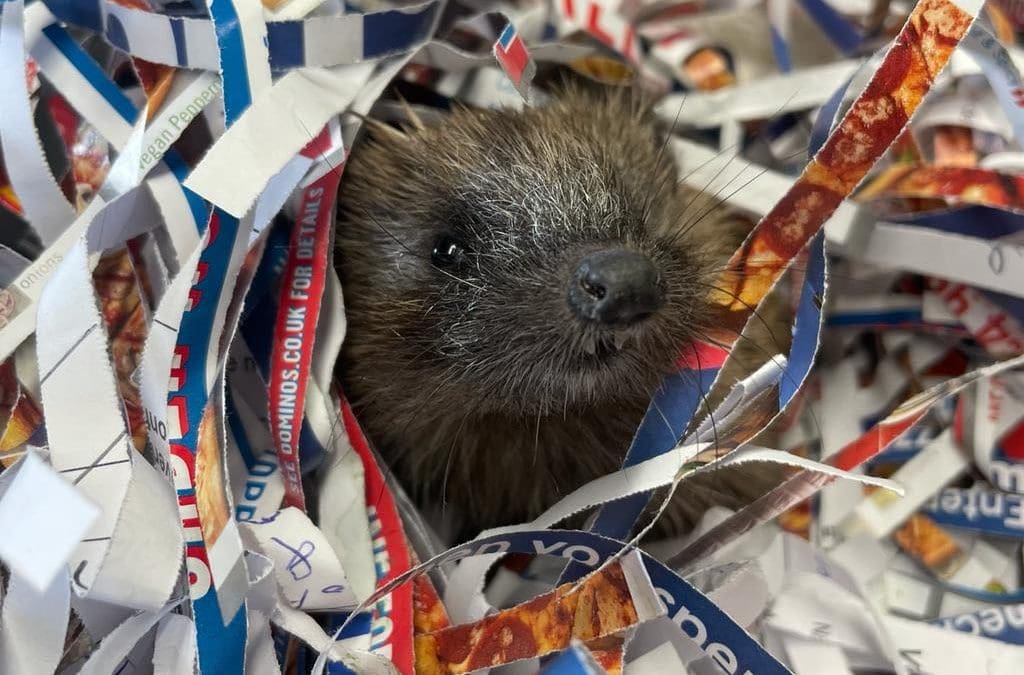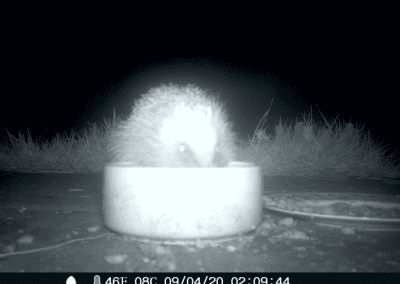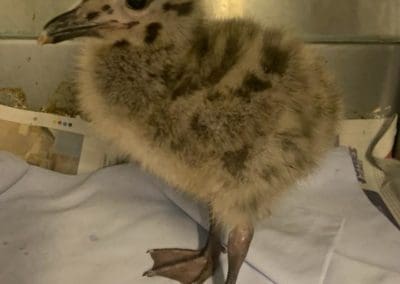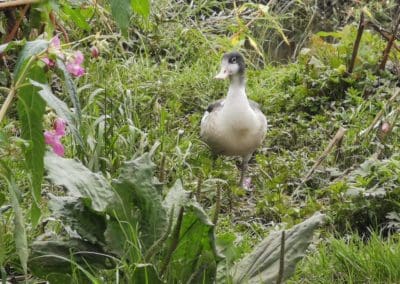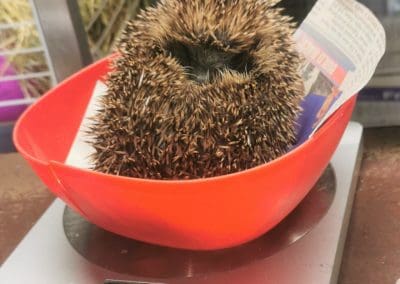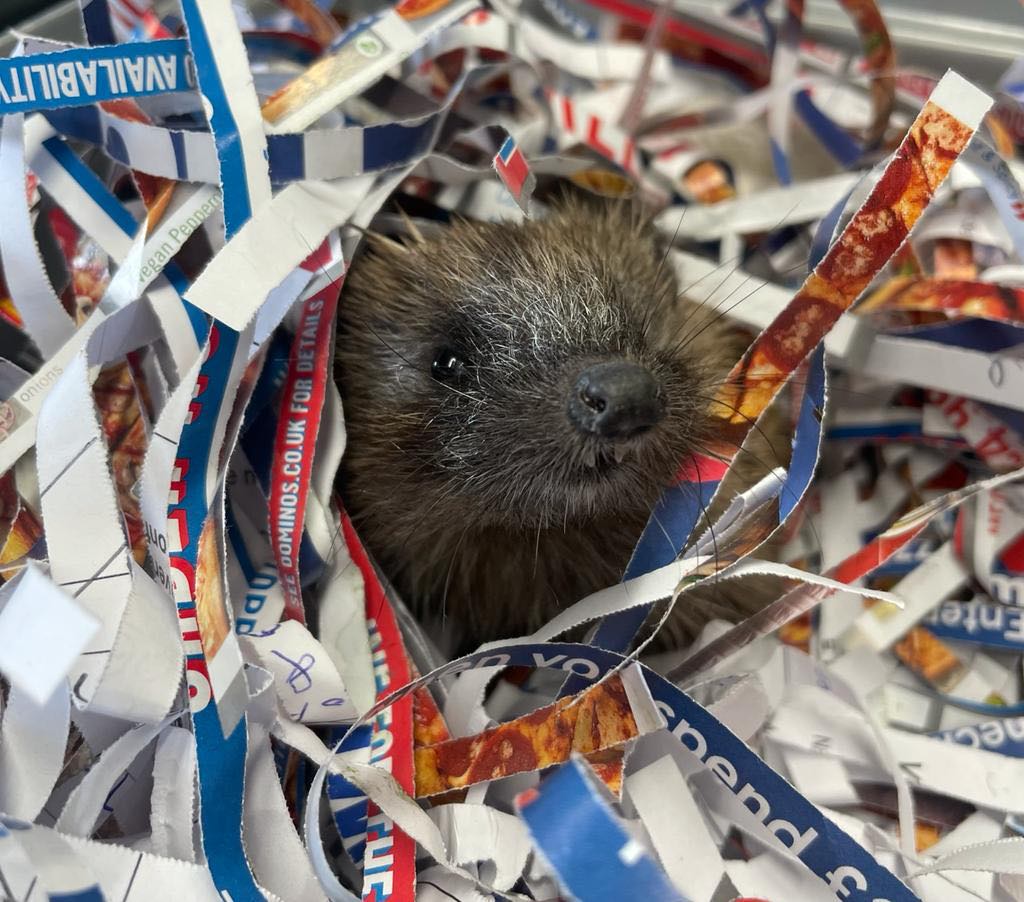
The last month has been as usual very hectic! Although, we are currently not admitting wild birds (due to the outbreak of Avian Influenza across the UK) the unit is still full of hedgehog admittances not slowing down and of course, not forgetting that the wildlife unit is also combined with the small animal unit.
The biggest news from the wildlife unit this month – is that we have started the demolition of our outdoor unit. This building has needed repairments for some time now, and we are now in a position where we can redevelop this area to benefit the animals and staff area. We will be taking progress photos of this work – as we are very excited to see the outcome of the new building!
Out and about in November
Now that the mass immigration of overwintering birds is underway, many birders are heading to estuaries to observe flocks of sanderling, knot and sandpipers working the mudflats. Whenever birds gather in large numbers predators can also be found, and birds of prey including peregrines and harriers are attracted by these waders. In nearby fields you can often find swans and geese feeding including over 50,000 barnacle geese that fly in from as far away as Russia to spend the winter in our milder climate.
Starling populations are now increasing as over 800,000 of resident pairs are joined by millions of migrants from the continent, leading to some massive flocks that can be seen wheeling and diving in the sky before roosting. These huge flocks are called murmurations, a term thought to be coined by the English monk and poet, John Lydgate, an allusion to the murmuring noise that the birds make as they pass overhead. Some flocks can contain in excess of 100,000 birds.
Ladybirds are now starting to gather under bark, in window frames and sheds/garages to spend the winter in torpor, while most beetles will be retreating underground or under logs. Many insects and some amphibians will overwinter in long grass so leaving an area of your lawn overgrown is useful to their hibernation. If you can create a log pile, even better.
If you’re working in the garden this month you may dig up some small brown plastic-looking cases. These are the pupae of moths and beetles and if you re-bury them where you find them, they should pupate next year. You may also come across bramble leaves that look like someone’s scribbled on them with white chalk, this is created by the caterpillars of the bramble leaf-miner as they chew their way between the top and bottom layers of the leaf. If you look carefully you’ll notice the tunnel widen as the larvae grows and holding the leaf against a light should reveal a dark trail of insect droppings.
There are still a few spiders around, but these will gradually start retiring as the weather cools, although some in houses and sheds/garages may remain until December. In our parks and woodlands most spiders either die at the end of the breeding season, before the cold sets in, or overwinter in leaf litter.
Foxes are very active this month as the cubs begin to disperse to look for their own territory. The fox breeding season runs from around December until February, but you might start to hear them calling now. Badgers, by contrast, are starting to venture out less as the nights get colder. Badgers don’t hibernate, but they are generally much less active during the winter, preferring to spend the coldest months underground, where their cubs will be born early in the new year.
Hedgehogs are now looking for suitable hibernation spots and are attracted to large piles of leaves and branches, which make ideal hibernacula, so please consider creating a leaf pile to provide them with nesting material during the autumn and early part of winter.
Did you Know…
Dragonflies can see in all directions at the same time.
Bats are the only mammal that can fly.
An ostrich’s eyes are bigger than its brain.
There are over 470 million dogs in the world.
Please remember to…
Support wildlife at this time of the year by putting out food and water out for birds.
Please keep pets indoors during firework displays.
Please remove rubbish from your gardens or local area to prevent wildlife from injury.
Leave a ball in ponds to prevent freezing.
And Finally…
please remember to seek advice from the wildlife staff before bringing an animal to the rescue. If an animal is seriously injured, please take it to a vet as we don’t always have a vet on site. Vets rarely charge when treating wildlife.

Merchandise

Freshfields Lottery
